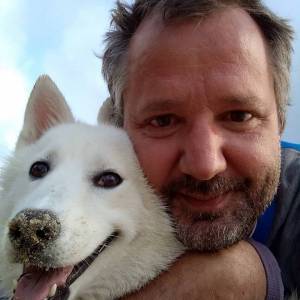Hope
On my last day in São Félix do Xingu I was sitting at a table in the garden when one of the elders came up to me. He went straight to the point: "The federal government gives us money if we send our children to their schools. The government offers us pensions. We receive royalties from mining companies. Money is destroying our culture. Our young men don't come to the warriors' house anymore, where we tell the stories of our ancestors. The young don't want to hunt and fish anymore. They prefer to spend their time counting their money and talking about how they can get more. The young men know nothing about our culture anymore. The government says they are giving us money to help us, in reality, we're selling our future for a dime. I still defend our land, but what will be when I die? Without culture our land becomes meaningless. The young will move into the cities where they can spend their money. They are already abandoning our land, and that's exactly what the government and the big companies want: our land. Money is destroying our culture. Money is killing the Kayapós."
And then, without warning, he added: "We need you to continue your father's work."
"Why?" I was surprised to hear that in this context. They had already told me on the second day of my visit that they wanted me to come back, but this was the first time they said that they wanted me to do what my father had been doing during the last decades. Since his retirement he had come every year to share his Christian faith with them, offering Bible studies and teaching them the principles of a Christian lifestyle. Now I remembered that one of the first things they had asked me when I arrived was: Are you a son of God? And they seemed to be relieved when I answered positively.
I knew that some of the Kayapós that had come to see my Dad one last time were followers of Christ, but I had never seen a connection between Christian faith and the preservation of their culture. On the contrary, I had heard that many Kayapó-Christians were beginning to refuse to participate in dances devoted to their Spirits. That was the opposite of preserving their culture.
"Why?" I repeated my question.
"Your father taught us that there are values bigger than money. He taught us that there is hope. We need you to remember us that there is something bigger than money, something even bigger than the nation of the Kayapós. We need you to remember us that there is hope. Will you do that for us? Will you come back next year?"
Never before have I felt my responsibility as a Christian of living and sharing the message of Hope more deeply than I did on that morning, sitting in a beautiful tropical garden, surrounded by men of a culture I barely knew, but who were desperate for me to share with them the precious legacy I had received from my father. On that morning, I also began to understand why my father's faith has had such an impact on the lives of so many: He was a living example of a man of faith who doesn't judge, but who loves God and men with such passion that he doesn't spend a second thinking about what it might cost him.

Comments
Sign in or get an account to comment.


